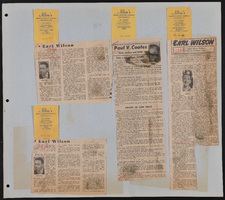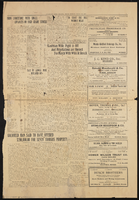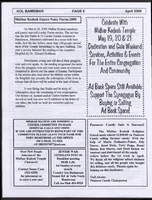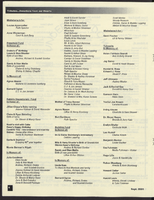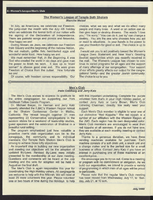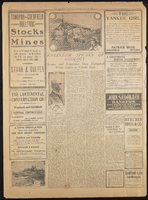Search the Special Collections and Archives Portal
Search Results

Transcript of interview with William Hanson by Randy Martin, March 5, 1979
Date
Archival Collection
Description
On March 5, 1979, Randy Martin interviewed William George Hanson (born 1937 in Huntington Park, California) in his home at 4506 West Del Oro Drive, Las Vegas, Nevada. The interview begins with Hanson providing a brief overview of the different addresses that he has lived at as well as his personal background and interests. Hanson describes his experience playing on a racially integrated youth baseball team and his perception of the western side of Las Vegas; Hanson later recalls a rumor he had overheard about Howard Hughes. The two then discuss recreation in Las Vegas; specifically, jazz entertainers that would perform at lounges on the Strip, and swimming in hotel pools. The interview concludes with Mr. Hanson describing a pizzeria that he used to frequent in the 1950s.
Text

